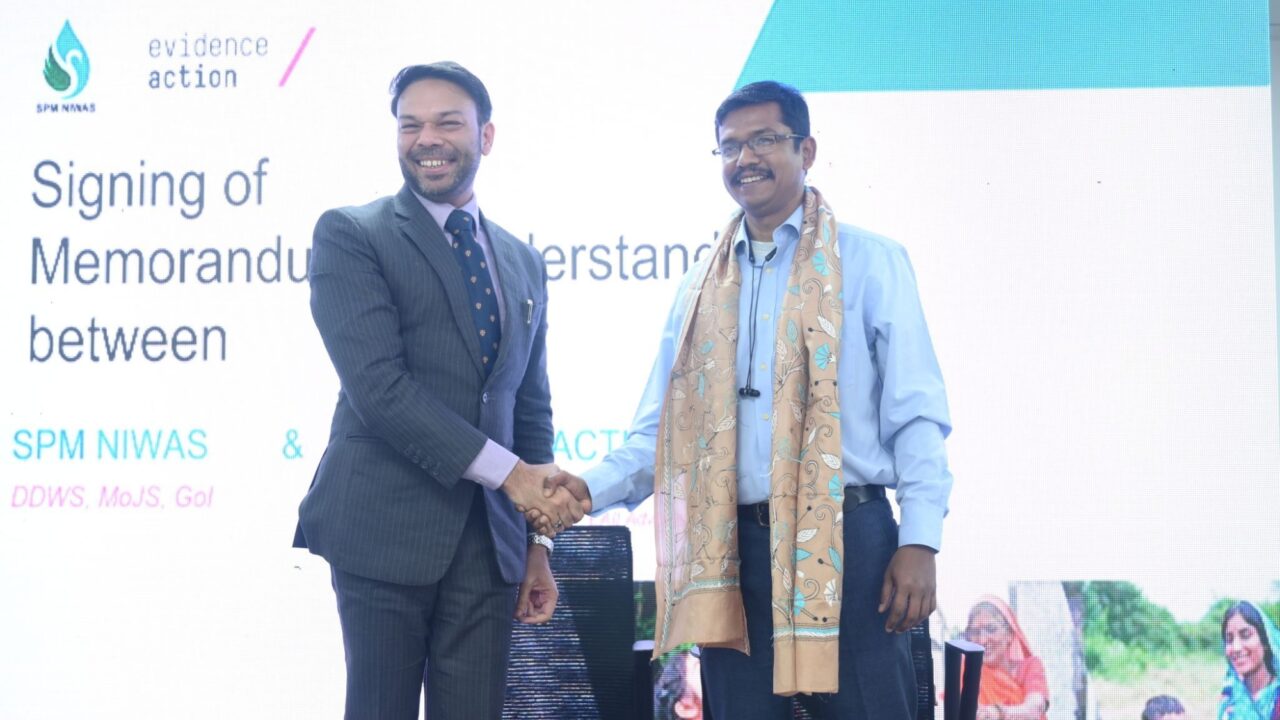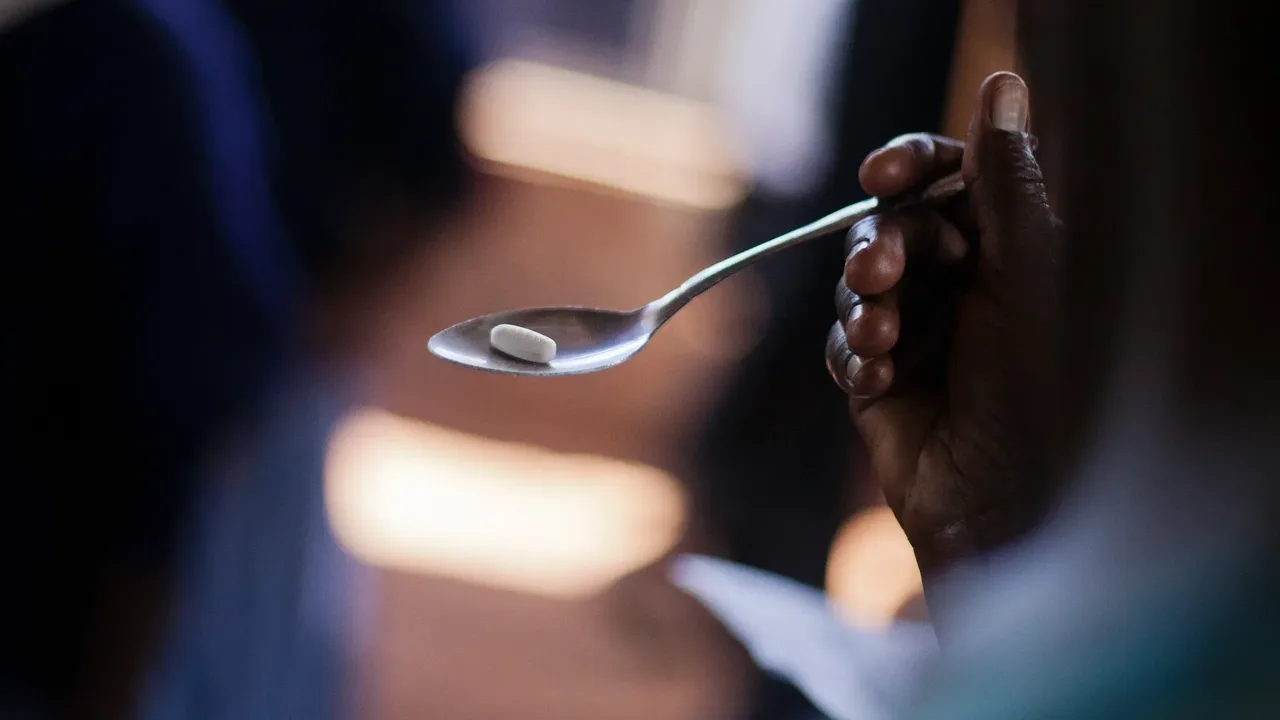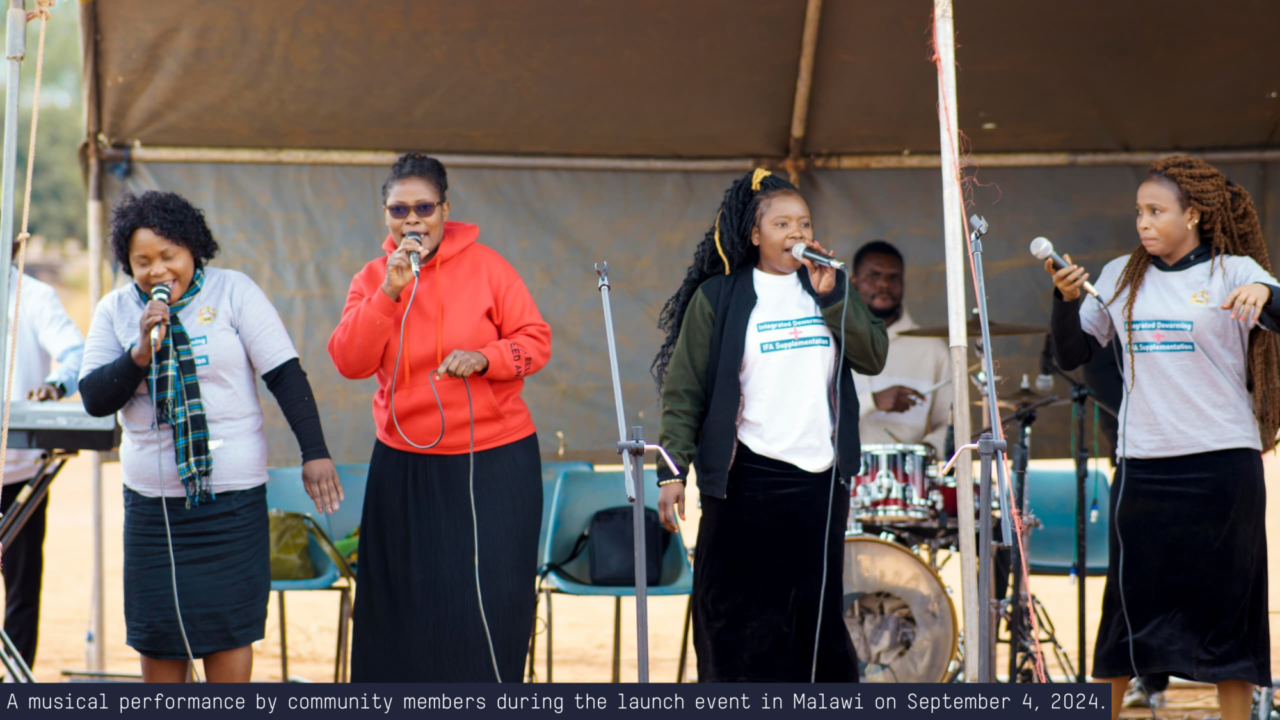With schools remaining closed across much of India due to COVID-19, the Government of India decided that the first 2021 round of National Deworming Day should proceed through door-to-door, community-based treatment. We helped the government design and implement this model for the prior round in late 2020, as explained in the blog below, originally published in September 2020. Our team continues to work closely with the national and some state governments to support the current treatment round, taking place between February through April 2021.
Like many countries, India closed its schools in early 2020 to mitigate the spread of COVID-19. This decision, though necessary, meant that the country’s National Deworming Day –a fixed single day in which deworming is carried out in schools and preschools (known as anganwadis) across the country– was no longer viable. However, in recognition of the importance of continued deworming, we assisted the Government of India to rapidly adjust delivery to a community-based model, where the medication is delivered straight to children’s homes and the communities in which they live.
Since 2015, under the banner of our Deworm the World Initiative, we have provided technical assistance to the Government of India’s National Deworming Day, wherein teachers and anganwadi workers administer deworming treatment. This preschool and school-based model is highly cost-effective, well accepted by communities, and brings the treatment to where the majority of children already are– in schools and preschools. In August 2019, this approach resulted in treatment of over 255 million children in India, as reported in official government figures.
However, deworming is not a “one and done” solution, and in the case of India specifically, most children should be treated twice annually to keep worm infection levels low. With COVID-19 impacting treatment plans in some states in early 2020, and given high political commitment to the program, the government designated deworming as an essential health service, signaling the priority to continue regular treatment and reduce reinfection risk amongst children and adolescents aged 1 to 19.
Fortunately, in response to COVID-19, we had already been working to adapt the country’s Iron and Folic Acid Supplementation Program to a community-based approach, and so there was already precedent for delivering medication straight to children’s homes. As such, plans were made to proceed with deworming through this door-to-door community-based approach.
In order to ensure that the program wouldn’t exacerbate risks of COVID-19 transmission, our teams conducted a risk benefit assessment as well as considerable analysis of the situation on the ground. To further minimize the risks presented by the pandemic, the community-based approach strictly follows guidelines set out by WHO and India’s Ministry of Health and Family Welfare on how to safely conduct mass drug administration during COVID-19.
During the door-to-door community-based administration, frontline workers are trained on protection from COVID-19 through the use of masks, social distancing norms, and hand hygiene; and the avoidance of vulnerable population segments, such as children who are immunosuppressed. Additionally, ministry guidance states that drug administration is not to be carried out in areas with high rates of COVID-19, known as containment zones.
As with the school-based program, we’re providing technical assistance for this community-based round. We developed implementation guidelines for the revised approach that were disseminated to states; designed locally appropriate awareness campaigns that stressed the importance of being dewormed; redesigned the training and distribution cascade so that most in-person meetings are replaced with virtual sessions; facilitated relaying program materials from the national level to the frontline workers responsible for administering treatment; supported drug procurement and logistics; and adapted reporting formats and processes. For this deworming round, we are directly supporting 11 states, while continuing to assist the Government of India at the national level.
One of the greatest challenges was the procurement and delivery of deworming drugs during the pandemic. Over 60 percent of the necessary supply of albendazole, the drug used for deworming, is manufactured in India with raw ingredients from China. As a precaution during COVID-19, imports from China were impacted and unfortunately resulted in supply chain problems. In response, our teams worked doubly hard to address supply gaps including through developing distribution plans for WHO donated drugs, so that the deworming program would not be adversely impacted.
This community-based approach relies primarily on door-to-door administration led by community health workers known as Accredited Social Health Activists (ASHAs). Under normal circumstances, ASHAs are responsible for ensuring children who do not attend schools or anganwadis receive treatment on National Deworming Day through mobilization efforts at preschools. However, under the community-based approach, the role of these frontline workers has significantly expanded, and they are responsible for administering the deworming treatment to each child at home.
This deworming round has given flexibility to states to conduct their rounds taking into account local circumstances through October 2020. Most states will conduct administration across a 7 to 15 day period, to allow for the highest possible coverage.
Given that this is the first time that deworming will occur through this delivery platform, and that the pandemic situation is largely unpredictable, there is a high probability that treatment coverage will differ from previous rounds. While the program is expected to revert back to school-based delivery when schools reopen and a new COVID-normal is established, we anticipate learning many lessons from this round to positively inform future rounds.
“During the pandemic, it has become even more important to take care of the underlying health of children and adolescents, to boost their immunity. The community-based approach is the Government’s commitment to prioritizing the health and well-being of its children and adolescents,” shares Priyanka Bakshi, State Program Manager, Rajasthan.



